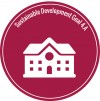SDG4 all activities

Through its activities, standards and tools developed in this field, the Council of Europe encourages its member States to provide equitable, quality education whereby all learners acquire the competencies, values, culture and knowledge essential for ensuring social integration and intercultural openness. Activities ranging from the Common European Framework of Reference for Languages, to projects such as the Quality Education in Romani for Europe, the development of a Reference Framework of Competences for Democratic Culture and the support provided by the Education Policy Advisors Network to effective implementation of Council of Europe education standards are just some of its stepping stones for achieving equitable, quality primary and secondary education that leads to relevant and effective learning outcomes in line with the values and culture of human rights and democratic citizenship.

The Council of Europe believes that education for democratic citizenship is a factor for social cohesion, mutual understanding, intercultural and inter-religious dialogue, and solidarity, that it contributes to promoting the principle of equality between men and women, and that it encourages the establishment of harmonious and peaceful relations within and among peoples, as well as the defence and development of democratic society and culture. A variety of activities have been organised within the Council of Europe education programme that pertain to SDG means of implementation 4.a on Effective learning environments. A project organised with the European Union focuses on fighting bullying in Albania. Pilot schools started putting in place mechanisms to prevent bullying and to respond to the ideological challenge of extremism. Pupils have reported experiencing a safe and supportive learning atmosphere. Moral values of inclusion and respect are taught as a part of the school culture. In 2018 the Council of Europe Education Department will launch a new education campaign: “Free to speak, Safe to Learn: Democratic schools for All”. The good practices highlighted in the campaign will reflect safe learning environments, free from any violence and fear, and the promotion of freedom of speech in schools.
Language of schooling
Languages of schooling are taught as subjects in their own right (literacy, reading, writing, literature, thinking about language, etc.) but also used for the teaching of other subjects (maths, biology, history, geography etc.).



